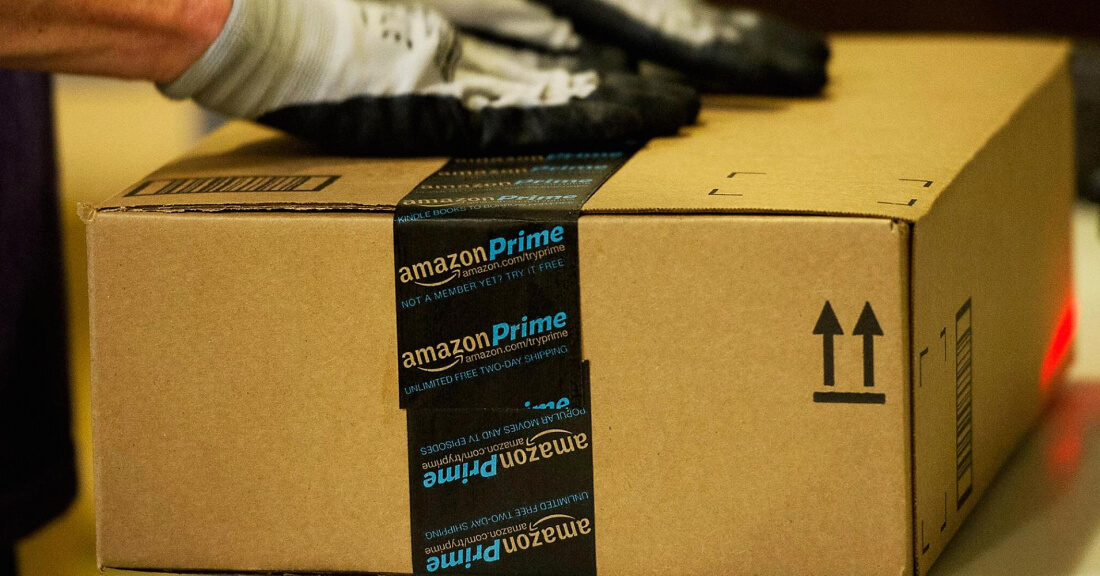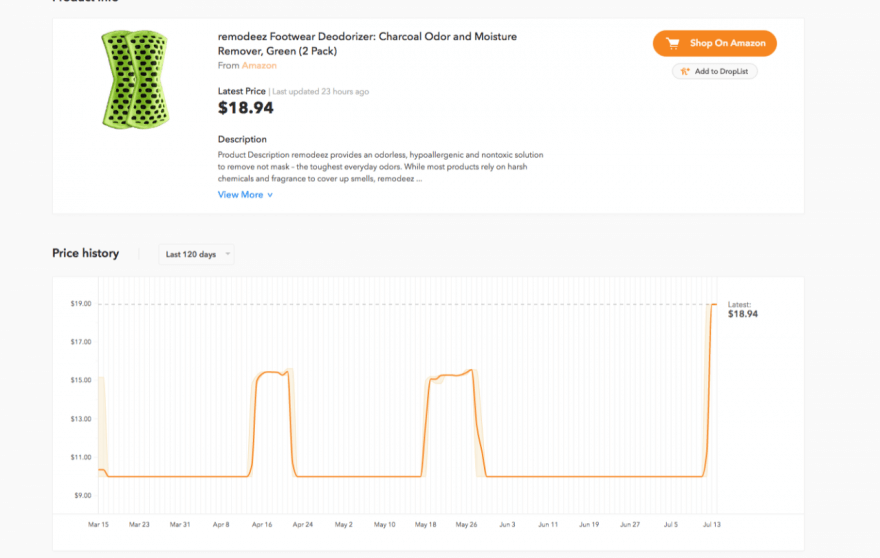
Amazon faces more allegations of deceptive discounting today as Charlotte-based startup Remodeez says the e-retail giant falsely inflated the prices of its products during Amazon Prime Day to make it appear the items were selling at a substantial discount. The giant e-outlet has already been under scrutiny by the Federal Trade Commission over similar charges put forth by consumer advocacy group, Consumer Watchdog.
Jason Jacobs, the founder of the Remodeez, has been selling his foot deodorizers and other odor stoppers on Amazon since 2015. He claims that the two companies had agreed to sell his products at a suggested retail price of $9.99, the same price he sells them for on his website. However, during the Amazon Prime Day event, he noticed that his product was listed at $15.42 but marked down to $9.99. It appeared that the item was being sold at a discount when it was actually being sold at the regular price. Furthermore, on the last day of the sale, the deodorizers were listed even higher at $18.94 creating the illusion of an even bigger discount.
“We put a support ticket in right away, and I rallied some friends through social media to go to their complaint board and complain,” Jacobs told Fox Business. The next day the price was reduced back down to its usual $9.99.
While $9.99 is the suggested retail price of the item, ‘suggested’ is the keyword. Amazon still reserves the right to sell the product for whatever price they choose, and the company does adjust prices occasionally to reflect demand, a practice known as consumer-based pricing. Jacobs admits that after looking at the pricing history of his products, there have been four other times that prices had been inflated. Each spike correlated to times that the company had received some publicity. However, the pricing during the big annual sale did not reflect a sudden jump in demand or received publicity. It appeared to be surge pricing, which an Amazon spokesperson flatly denies.

“Amazon does not engage in surge pricing. We always seek to meet or beat the lowest price. We obsess over the things we believe customers will always care about--low prices, vast selection, and fast delivery--and work hard to provide all three, all the time.”
More claims of deceptive discounting are the last thing that the mega retailer needs. Amazon is already under the microscope by the FTC, originally stemming from its Whole Foods acquisition. During the probe, Consumer Watchdog filed complaints against Amazon claiming that it has been practicing deceptive pricing, which is a violation of Section 5 (a) of the FTC Act. The group said it studied 1,000 products and found that around half of them had received boosts to their listed prices during sales. The sale prices were identical to the price the item had been listed at for the last 90 days.
Amazon denounced Consumer Watchdog’s findings. The company says it validates reference prices by comparing them to recent prices found on the website and with other retailers. Jacobs’ claim refutes that defense and corroborates Consumer Watchdog’s allegation. Jacobs has tried contacting Amazon’s PR department and the director of Amazon Launchpad but has not heard back from either. He has concerns about his future selling through the e-commerce website.
"[I run] the risk [of Amazon] squashing [me] for making noise, but it is worth it to bring the issue to light," said Jacobs. "I don’t think they are being malicious about it, it is just something that they need to tweak."
https://www.techspot.com/news/70284-vendor-claims-amazon-misled-customers-using-deceptive-price.html